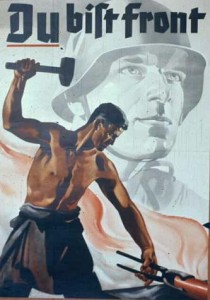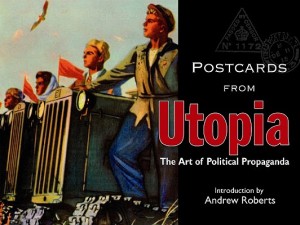Because of society’s new obsession with the TV series, “The Walking Dead,” it got me thinking about how the audience of this show admires and idolizes the characters and their situations. What i find alarming is how that these characters are living in a post apocalyptic world and despite this, the audience is not necessarily hoping for a zombie apocalypse, but by the TV ratings and buzz arising from the show, viewers sure would not mind killing a few zombies. This argument of mine arose when I was talking about the show (which I watch and enjoy), with a few of my friends. It was fascinating how much this show has captured the mind of the audience and allows the viewer to put him or herself in the shoes of a person living in a zombie infested civilization. After one episode, I caught myself doing the same thing; analyzing my apartment and saying to myself, “Okay if a zombie jumped me right now, what would I do?” What got me so alarmed about this situation is that the show has millions of viewers and every single one of those viewers believes that they will be one of the survivors. The more I thought about this I laughed because if everyone was a survivor, who would be the zombies? There would not be an apocalypse if millions of people were survivors. So now, whenever I find myself in a, “Walking Dead,” conversation, I ask, “Would you want a zombie apocalypse?” I am met with a variety of answers but the gist of each is yes. Even after I point out to them that the probability of them being a zombie is exponentially higher than being a survivor and even if you are a survivor, the chances of you having to kill a loved one or watch one die is probably 100%, they still would love to live in this dystopia world filled with, “The Walking Dead.”
Monthly Archives: March 2013
Will Robots Create Economic Utopia?
I came across a very interesting article in Bloomberg Businessweek several weeks ago. The article, entitled “Will Robots Create Economic Utopia?” (Found here: http://www.businessweek.com/articles/2013-02-11/will-robots-create-economic-utopia) seeks to defend the current robots and automation that have been criticized for taking away jobs from real human beings. The author, Chris Farrell, says that while it is easy to imagine a “dystopian future defined by technological unemployment and underemployment for the mass of workers”, the potential efficiency gains and productivity improvements from rapid technology are incredible. Farrell goes on to say that with artificial intelligence, there is a fundamental shift in our societal concerns from “how to best to generate growth” to “how best to distribute wealth”. In other words, the problem now is how to we distribute wealth. How do we get it into human hands? Farrell says that notions of simply redistributing wealth miss the fact that the returns on work aren’t just measured in wages. Work is a social environment: an institution with gossip over coffee, birthday celebrations, purpose and meaning. One’s job keeps the individual feeling connected to a wider community.
While some point to jobs lost due to our rapid technological growth, others are focusing on the jobs that have been created in recent years, such as app developers for smartphones, and jobs that will be created in years to come that we cannot even imagine now. I think that perhaps with this to be the case of more and more jobs in our near future, our society needs more creative spaces: we need more office buildings for freelance workers (for graphic designers, app inventors, internet authors). If we are shifting many of our jobs to digital, we should create public space for workers, to keep notions of community connections in the workplace alive.
The redistributing of this wealth being generated by machines, or “robots”, strikes me as problematic. Who decides? This article reminded me of a chapter from Edward Bellamy’s Looking Backward where Doctor Leete discusses the economy, explaining “It had come to be recognized as an axiom that the larger the business the simpler the principles that can be applied to it; that, as the machine is truer than the hand, so is the system, which in a great concern does the work of a master’s eye in a small business, turns out more accurate results. Thus it came about that, thanks to the corporations themselves, when it was proposed that the nation should assume their functions, the suggestion implied nothing which seemed impracticable” (Chapter 5, Looking Backward) Do major corporations continue to grow with these digital jobs, or is there hope for independent internet/digital workers? As technological progress continues, expands, and changes job structures and aspects of our social sphere, it is essential that political scientists, sociologists, and economists continue to question the future of the world we are currently creating.
Is there a Utopia we can all believe in?
While I was looking for something to write my blogpost about I stumbled onto this website. The Modern Utopia is a blog written by Richard Fairfield, (just some random guy with a little too much time on his hands) which outlines exactly what must be done in order to turn the United States into a utopia. While looking over it I noticed a few things that I found interesting, either because I hadn’t considered that these were issues a utopian society need address, or because what he said annoyed me (keep in mind that I didn’t read every section in great detail). For one, I thought it was interesting that he had an entire section, and a lengthy one at that, on animal rights. This isn’t an issue I had remotely considered when outlining my Utopia project and got me thinking. Should the happiness of animals be an important factor in utopia? Technically shouldn’t everyone, including animals, get to be happy?
The biggest issue I had with Fairfield’s utopia is that for many, many American’s this wouldn’t be a utopia. His ideas of utopia aren’t generalizable at all. His proposed tax increases and extreme social views would undoubtedly displease a great number of people. This goes back to an issue we talked about in class the other day. If you have a large population with many different beliefs, is there any way for them to all exist in the same utopia? Or do utopias need to cater to small groups of likeminded peoples?
I’ve included the link to Fairfield’s blog. Parts of it are pretty entertaining.
http://themodernutopian.com/
Utopia in a moment
It is spring, even if it does not feel like it in the Lowcountry and our Cherry Trees (which are the exact same breed as those that were given to us by Japan and now line the Hudson River,) are beginning to bloom. While strolling through them this weekend, looking at the buds and freezing at the same time the irony of the moment brought back a scene in the movie the “The Last Samurai” where the leading Bushido warrior realizing that he is nearing his end has an epiphany. A radically altered character in the film played by Tom Cruise shares the moment where after staring at the petals of his favorite Cherry tree’s blossoms for many springs seeking the perfect blossom, realizes that in their own way they are all perfect. This a man trained in the Bushido Code, a mixture of Zen Theology, Shinto and Buddhism with a focus on martial arts, discipline, honor and violence is for a moment moved to the depths of his soul by a simple change of view and a moment of bliss.
I was struck with the relevance of the Sargent quote, “Life is an ever receding past and an always unreachable future.” If only this man could go back and enjoy the entirety of the beauty that his tree had shown with out looking for something wrong in all of the many blossoms it had produced the peace he obtained in that one moment could have been multiplied. His moment of clarity and life are soon lost on the battlefield but his death would soon bring a similar moment by Japans then young emperor.
The tragedy of the loss of the Samurai’s is the central theme of the movie, but, for the sake of our class and the idea of Utopian thought it occurred to me that on a snowy morning, inspecting blossom after blossom this master of violence was moved to tears by the realization that it was not the blossoms that was imperfect but his goal did gain him a moment where neither the past nor the future held weight, only a few seconds of time frozen where peace flooded in and shadows fled before a dawning light so bright that freed him from the mortal shackles that bind us all in some form or another.
The Jacobs article references a friend who related Utopia to laughter. If you think about it in those moments that something really makes us laugh even the heaviest of burdens are shed for a moment. So, with the odds being that none of us will ever live in a Utopian society maybe we should make it a point to grab each Utopian moment, to see the beauty of the tree rather than scrutinizing the blossoms of our friends, family and life in general and choose to laugh at every chance life gives us.
I was recently talking with someone who has sacrificed a lot for his country and just out of the blue I asked him what he wanted more than anything at that moment and his response shocked me. He said I want to smile and even more than that I would really just like to have a real reason to smile. I hope he finds his moment and even though I am in a place that a lot of people would find Dystopian the Azalea blossoms I see outside of my window look a little brighter right now.
Utopianism As a Weapon
For my second blog post, in which I may write freely, I think it will be interesting to consider the idea/concept of Utopia and the possibilities of using it to reach negative ends. I do not mean negative in the sense of it being a Dystopia, but the use of Utopian vision to advance poor a negative cause. Below, I shall illustrate what I mean more precisely.
While browsing through the stacks at Addlestone I came across a book entitled, “Postcards From Utopia: The Art of Political Propaganda.” The book contains a series of political propaganda images from throughout recent Western history which depict utopia-like scenes that suggest the bright future that the particular regime will advance if their will were to be done.
The classic, and most prominent, of these however, unsurprisingly, comes form Nazi Germany. I will exemplify my case using them in particular. The book is filled with political propaganda art from Nazi Germany suggesting the great and bright future that would come by supporting the regime’s cause. When viewing these pictures, it is quite clear that the artist was rendering a sort of Utopia for the average German citizen, with Aryan people either working together or engaged in some noble or triumphant act. I do not know much about psychology, but I should like to think that constant inundation these images to the average citizen in Pre-World War II German–where a bad economy was beginning to take its toll on them–of prosperous Aryans with no obvious Jews in sight, might subconsciously plant a small seed of prejudice and entitlement. These pictures of Aryan prosperity and success, in addition to the degrading, Dystopian type pictures concerning their present economy scapegoating the Jews in the country would create the perfect cocktail for the Nazi’s to lure the people of Germany into the holocaust.
Essentially, I would like to pose the question: could Utopianism only be a tool for manipulation of a people in order to carry out evil acts? When considering the idea, I recall that most people do not believe a true Utopia is even possible, so is the idea of a perfect society perhaps only a low hanging fruit for tyrants to use on an impressionable population to gain control and perhaps enact their versions of Utopia as Hitler had? What are your opinions on the inherent nature of Utopia and its propensity to facilitate evil doing?
Pocket Utopias
During the course of our discussions on intentional communities over the past few classes, I’ve been thinking about how the ideas behind these ‘pocket utopias’ connect to a different subject I’ve read and studied. A buddy of mine shared an NPR link with me about 3 months ago (I can’t for the life of me find the link anymore) that detailed the efforts of a small group of entrepreneurs who had developed a new theory about Third World development. The idea they had was that if they could buy a small portion of a country that was struggling to overcome economic, social, etc. woes, and start completely over from scratch, that they could slowly expand out from that center point and eventually develop the entire country. The guiding ideology was that instead of slowly trying to reform whatever issues already existed, they could bring investment in and create a ‘pocket’ of modernity, which would then serve to generate the necessary revenue to expand and overtake the less developed portions of the country.
In their case, there was immediately a hoopla stirred up, with many throwing out accusations of the theory essentially being neo-colonialism, and admittedly those accusations weren’t without some merit.
However, the same theory could potentially be applied domestically. Some of the intentional communities which exist already are actually somewhat on the right track. The co-housing project in Vancouver, for example, is situated within the larger existing community. If a group of people approached creating a ‘pocket community’ like the one in BC, but with the additional goal of slowly expanding and incorporating larger and larger amounts of the surrounding area, the guiding principles that the original community were founded on could be more easily spread in that way, as opposed to trying to legislate or institute changes across the entire country.
As an additional thought, I don’t think that the community itself would have to grow exponentially, but the principles that a community are based on could spread in a way that neighborhoods located near each other would maintain their autonomy to some extent, though each successive community could choose to organize itself in ways similar to the original pocket.
The key difference between this and existing pocket utopias is that this system would require the founding community to essentially evangelize their values to their neighbors, and try to convince more and more people and communities to join in, though without losing sight of their original values.
Pocket Utopia/Lesbian Paradise?
I immediately thought of this article after Monday’s discussion. Please read and let me know your feed back.
Beauty in a Utopia/Dystopia
In several Dystopian novels that I have read beauty becomes a defining marker between the “good” guys and the “bad” guys. For example in the Hunger Games those from the Capitol put their looks about everything else in their lives. They go to great extremes to have a certain look and completely change their skins, bodies, and hair in order to become beautiful. In other young adult series by Scott Westerfeld (Uglies, Pretties, Specials) people undergo a surgery upon coming of age which removes any and all imperfections and can drastically alter their appearance in virtually any way the person may desire so that they may become a “Pretty”. What does this say about dystopian life? Is beauty or the quest for beauty an important aspect of a dystopia? How does this compare to our society where we are starting to go to great lengths to maintain or create beauty? In a world where people get fat injections into their butt to create a bootilicious beauty or pec implants to bypass the gym are we really even that far from what Westerfeld or Suzanne Collins described in their dystopias?
Too Backwards for Looking Backward
On page 126 of Looking Backward Dr. Leete is describing to West the remodeling of the rest of the world. In the same way that the United States had become an interdependent nation in which money and all the problems attached to it had been removed, a few of “the great nations of Europe as well as Australia, Mexico, and parts of South America,” were similarly organized. I find this idea of a majority of the world operating without money very intriguing. The idea that somehow peaceful/productive coexistence is possible if the aspects of humanity that prevent it are removed would be something to consider especially considering how close to the edge the whole world is to economic ruin at the moment. Is it possible that its been that simple this whole time. That all we have to do is remove money and humanity will right itself? Before money and the intricate societies created from it when most of mankind relied on systems of barter or some form of reliance between one another there certainly were problems. But perhaps added with a complete remodeling of nature and values, where one’s work ethic determines their worth, its possible that more equal society can be achieved.
In the article “Bellamy’s Looking Backward, 2000–1887 , Globalism, and Race” it is noted that in Bellamy’s future there continued to be a divide between different nations of the world much like in reality. Africa and Asia continue, for the most part, to lag behind Western civilization both in Looking Backward and in reality. As the article points out, it is interesting how Bellamy was not able to imagine even in his own fabricated Utopia that everyone would be on “equal footing”. Despite his obvious belief in the inherent goodness of man we still would not be capable of equality among race. I would claim that this was simply a product of the time in which Bellamy lived and that we as a species have come somewhat closer to the idea of true equality for all (wo)man kind, but that would of course be completely ridiculous and unfounded. I do wonder if perhaps part of the problem is that there seems to be this idea that in order for everyone to actually be equal they must live in a society that mirrors the western world. Is utopia partly defined by adherence to whatever white European/American males deem it is? or perhaps we are completely ignoring that even in Utopia racial bias cloud world view beyond that of the western perspective.
The Island: The Use of Utopia and Eugenics
I watched The Island again remembering it had both Utopian and Eugenic themes. The movie stars Ewan McGregor and Scarlett Johansson as two clones amongst thousands of clones living in an underground compound. These clones serve as back up for the rich and famous in the year 2019. If the original human ever becomes sick, injured, in need of transplant, or whatever ill fate may disrupt or end their healthy lives, the clone serves as a harvester of skin, organs, etc.
The clones live happily falsely believing they have survived an apocalypse, or “contamination,” and that one day, based on a lottery, they will end up going to The Island, which is really where they go to die because their human is in need of them for one reason or another. They believe in this apocalypse and Island because during their cloning process they were given false memories. Ultimately McGregor and Johansson’s characters figure out the truth and escape. After that, the movie is basically irrelevant when it comes to this class.
However, I thought the idea of using the hope of a Utopia amongst the post-apocalyptic world with out any idea of how it came to be is quite relevant to our discussions of body utopias, utopias that exist without any human effort. I know that the Island was never real and that this applies to literature, but the people were led to believe this ideal place existed without any knowledge of how it came to be.
I also thought it was interesting that they used the Island to keep the clones content with their dystopian state. In this dystopia, the compound, they work as slaves for the company, have their diet heavily regulated, have no concept of intimacy, cannot become close with other clones (physically and emotionally), all while waiting to die.
The idea of hurting a few humans (clones) to save the same few (real) humans is not really utilitarianism because there is no gain, but only financial gain for this cloning company. So, while I would argue this movie has some concepts we have discussed in class and evokes a future moral dilemma, it is lacking in being a strong Utopian/Dystopian film.




